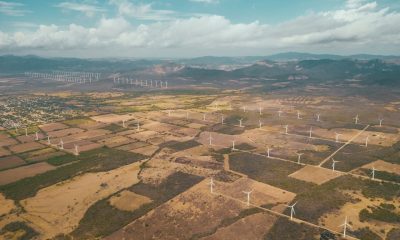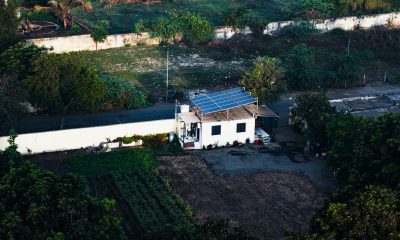Business
Investing in renewable resources helps developing countries flourish
Apart from environmental sustainability, renewable energy provides space for business growth and massive economic opportunities for developing countries.

There’s a big push for developed countries to invest in renewable energy, whether by installing solar panels, investing in wind farms or putting money into another project that reduces a nation’s dependence on fossil fuels. Those efforts can translate into significant payoffs. However, research also suggests that investments in renewable resources are even more beneficial for developing countries.
Developing countries invest more than developed nations
It might surprise you to learn that investment comparisons related to renewable energy find that developing countries devote more of their financial resources to non-fossil-based resources than developed nations do. In 2017, for example, the total worldwide investment was $280 billion, but developing countries accounted for $177 billion of that amount.
The impact to a continent
Sometimes, the effects of renewable energy investments affect entire continents, such as in the case of Africa. In 2016, U.S. President Barack Obama partnered investors and launched the Power Africa project tapped to bring solar power to 60 million homes and businesses.
There was also a joint initiative called Scaling Solar targeting four African countries to motivate the development of other sun-powered projects. The hope is that besides giving African residents access to reliable electricity, these initiatives will create jobs.
Underdeveloped countries encounter difficulties
Most people know that developing nations face challenges that do not affect developed countries as severely. According to Igor Chestin, the head of World Wildlife Fund-Russia, the least developed countries do not have the resources to deal with climate change and overpopulation like more developed countries might, which makes the effects of those things especially difficult to manage.

Chinese residents in Beijing are looking into the use of bamboo as a potential source of renewable resources. (Source)
Bamboo as an additional help
More than 1,000 representatives around the world recently met in Beijing to discuss how bamboo could help poorer countries achieve better sustainability while also reducing carbon dioxide in the atmosphere. It’s a renewable resource that’s stronger than steel and native to all continents except Europe and Antarctica, plus pulls more carbon dioxide from the air than most other plants.
One of the goals of the Beijing gathering was to convince national officials to launch sustainable development programs in countries that need them. Supporters of the idea pointed out that commercial uses of bamboo could provide economic opportunities to residents in some places.
Sparking a change in Argentina
Argentina has abundant renewable resources, particularly in the form of wind and sunshine, but it historically hasn’t tapped into them at the same rate as other nations. As a result, the electricity grid in the country stays near capacity, causing frequent blackouts.
In 2017, though, the Argentinian government decided to make a change for the better. It started an initiative called RenovAr that seeks to get 20 percent of the country’s electricity from renewable resources by 2025. Along with that, the country hopes to attract $35 billion in energy investments and use about half of that amount for electricity improvements.
The country got off to a strong start with its first renewable energy option. Argentinian representatives hoped to attract bids from investors for 1,000 megawatts worth of projects but ultimately received them for more than six times that amount.
If Argentina finds continual success with its renewable energy plans, the country will be an example to other developing nations that haven’t yet fully explored renewable energy options.
Renewable energy for a brighter future
This overview of how some countries and regions have depended on renewable energy to improve circumstances highlights why the prospect is so attractive to developing nations. Renewable energy could be a primary component that spurs future growth.
—
DISCLAIMER: This article expresses my own ideas and opinions. Any information I have shared are from sources that I believe to be reliable and accurate. I did not receive any financial compensation in writing this post, nor do I own any shares in any company I’ve mentioned. I encourage any reader to do their own diligent research first before making any investment decisions

-

 Africa2 weeks ago
Africa2 weeks agoAgadir Allocates Budget Surplus to Urban Development and Municipal Projects
-

 Cannabis1 day ago
Cannabis1 day agoSouth Africa Proposes Liberal Cannabis Regulations with Expungement for Past Convictions
-

 Biotech1 week ago
Biotech1 week agoVolatile Outlook for Enlivex Therapeutics as Investors Await Clinical Catalysts
-

 Markets3 days ago
Markets3 days agoWeather-Driven Supply Outlook Lifts Coffee Markets in Brazil and Vietnam

























You must be logged in to post a comment Login